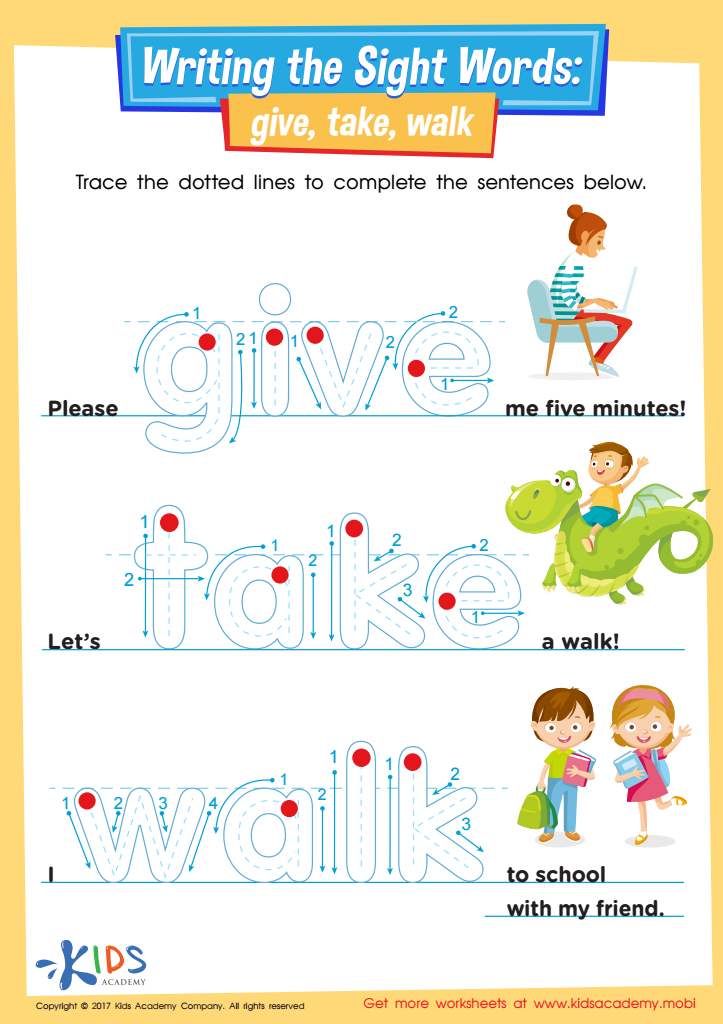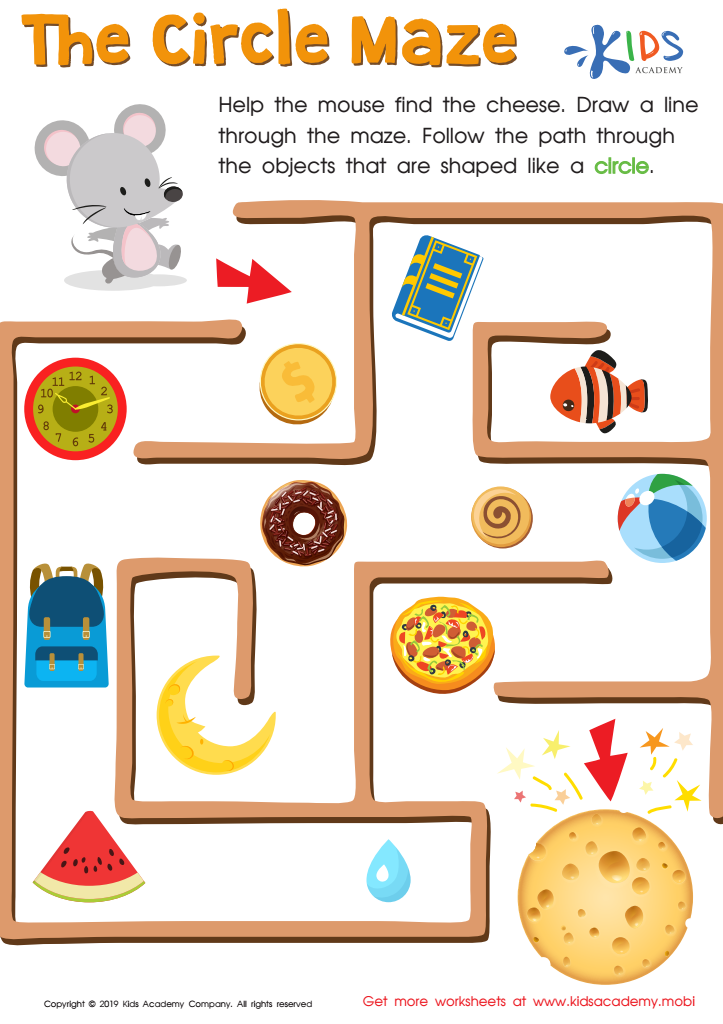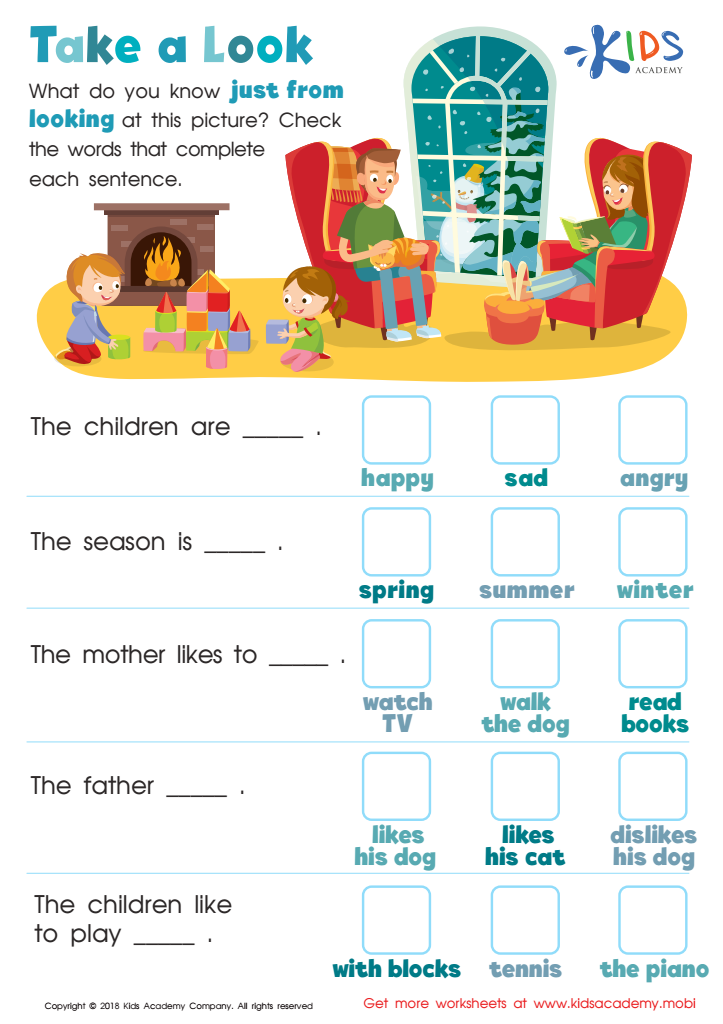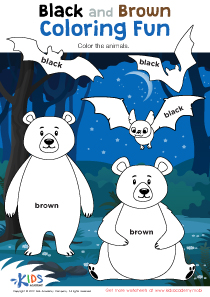Problem-Solving Skills English for Beginners Worksheets for Ages 4-6
3 filtered results
-
From - To
Welcome to our "Problem-Solving Skills English for Beginners Worksheets" specifically designed for young learners aged 4-6! These engaging and interactive worksheets help children develop critical thinking and problem-solving abilities while enhancing their English language skills. Each activity encourages creativity and logical reasoning through fun scenarios and challenges that are age-appropriate and enjoyable. Aligned with early learning standards, our resources guide kids in exploring and conquering everyday problems, laying a strong foundation for future success. Make learning English fun and impactful for your little ones with these thoughtfully crafted worksheets, perfect for parents and educators alike!


Give, Take, Walk Printable Sight Words Worksheet


The Circle Maze Worksheet


Take a Look - Part 1 Worksheet
Parents and teachers should prioritize problem-solving skills for beginners aged 4-6 because these foundational abilities are essential in early childhood development. At this age, children are naturally curious and inclined to explore their environment, making it an opportune time to nurture their critical thinking skills. Problem-solving encourages independence, creativity, and perseverance, equipping young learners with the tools to navigate everyday challenges.
By fostering problem-solving skills in English, children not only enhance their language abilities but also learn to articulate their thoughts and solutions effectively. This empowers them to communicate confidently, participate in group discussions, and engage in collaborative learning experiences. Furthermore, developing these skills at an early age lays the groundwork for academic success and builds resilience as children learn to approach obstacles with a positive mindset.
Incorporating problem-solving activities into both home and classroom settings can be playful and engaging, encouraging exploration through games, puzzles, and hands-on activities. Ultimately, supporting children in mastering problem-solving skills significantly contributes to their overall cognitive, social, and emotional development, transforming them into critical thinkers and capable learners prepared for future educational challenges.
 Assign to My Students
Assign to My Students

















